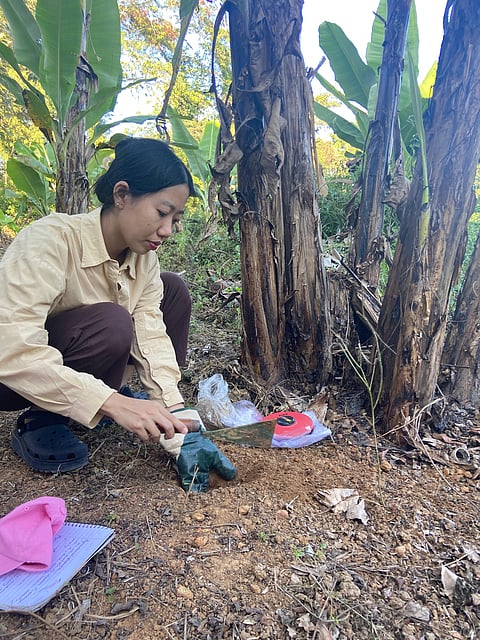

A multi-institute research team led by Nagaland University has revealed alarming soil degradation in the Dhansiripar region, with strongly acidic soils (pH 4.9–5.9), declining structural stability, and wide variations in nutrient availability threatening long-term agricultural productivity and environmental health.
The study, covering Amaluma, Dhansiripar, Doyapur, Kiyeto, Melongmen, and Razhaphe villages, examined the impact of diverse land-use practices — lowland paddy fields, cultivated plots, orchards, and forests — on soil properties.
Key scientific insights
- Organic carbon ranged from 0.45% to 3.69%, showing uneven organic matter turnover
- Lowland paddy zones showed clear signs of structural degradation and higher erosion risk
- Significant differences in macronutrients and cation exchange capacity highlight the need for site-specific soil management
Co-author Prof Manoj Dutta said that, “This study meticulously examines a diverse array of land use systems... By adopting this comprehensive approach, the research facilitates a nuanced exploration of how various land management practices impact soil properties.” While Prof Tanmoy Karak added: “We found that soil in Dhansiripar is particularly vulnerable to erosion and fertility loss... These findings reinforce the need for land-use-specific conservation strategies and sustainable farming interventions.”
Groundbreaking research for Northeast India
Published in the Springer journal Environmental Monitoring and Assessment (DOI: 10.1007/s10661-025-14699-8), the study is one of the most detailed soil health assessments ever conducted in Nagaland, using advanced statistical tools like multivariate analysis, principal component analysis, and cluster analysis.
Way forward
The team plans long-term monitoring, promotion of agroforestry and improved crop rotations, integration of traditional farmer knowledge, and policy advocacy for evidence-based land-use planning. The research involved scientists from Nagaland University, ICAR–Indian Agricultural Statistics Research Institute, University of California San Francisco, Dibrugarh University, Tocklai Tea Research Institute, and Diphu Medical College and Hospital.
